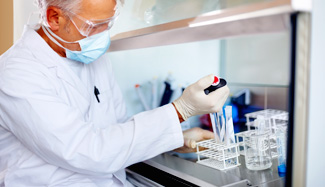Regulations
Stromal vascular fraction (SVF) was first used as a therapy over 14 years ago in 2004. In Australia, autologous SVF therapy has been used over the past 8 years in medical practice in the treatment of osteoarthritis.
Cell-Innovations have developed proprietary technology which uses ultrasound cavitation to extract the autologous Stromal Vascular Fraction (SVF) with extra-cellular matrix from adipose tissue. Once separated from adipose tissue, the SVF is not manipulated or cultured. A large body of scientific evidence suggests that adipose-derived SVF may act by replacing lost or damaged cells, reducing inflammation, improving the function of cells at the site and recruiting cells from other parts of the body to assist in these processes.
The TGA Guidelines Followed By Cell-Innovations
On July 1st 2018 the new legislative framework for regulation of human cell and tissue products by the Therapeutic Goods Administration (TGA) came into effect (TGA regulations July 1st 2018). The TGA regulations excludes products that are derived from human tissue and cells during medical procedures that are used in an accredited hospital under the new framework. Provided that:
Prohibit advertising to consumers of autologous HCT products, similar to the prohibition in Australia of the advertising of prescription medicines, but noting that services (that do not mention specific products) will still be permitted to be advertised.
- Exclude from regulation by the TGA only those autologous HCT products that are manufactured and used in an accredited hospital by a medical or dental practitioner, for a patient in the care of the same practitioner.
- Introduce regulation by the TGA, with exemptions from some requirements, for autologous HCT products that are:
- minimally manipulated
- for homologous use only
- manufactured and used outside an accredited hospital by a medical or dental practitioner, and
- for a patient in the same practitioner’s care.
- Regulate under the Biologicals Regulatory Framework autologous human cell and tissue products that are:
- manufactured and used outside an accredited hospital, and
- more than minimally manipulated, or
- for non-homologous use.
Further information on the TGA regulation can be found at the TGA biologicals regulations
AHPRA
Professional responsibilities of treating medical practitioners
The exclusion from the operation of the Act and Regulations of HCT in the circumstances described above has no effect on the professional obligations of medical practitioners to maintain satisfactory standards of practice that are appropriate to their profession. The treating medical practitioner should be mindful of adherence to professional standards when using products that have not been evaluated for safety and efficacy by the TGA. This would include consideration of whether the treatment being undertaken is necessary and safe and whether its efficacy is supported by credible clinical evidence.
Also, with use of a product that is not approved for use in Australia, patients should be provided with adequate information to enable them to give informed consent to treatment.
Professional standards include professional performance and conduct, which are governed by the Medical Board of Australia. Guidance is contained in Good Medical Practice: A Code of Conduct for Doctors in Australia.
In addition to the Australia Regulatory bodies Cell-Innovations respect the opinions of bodies such as the International Society for Stem Cell Research (ISSCR).




